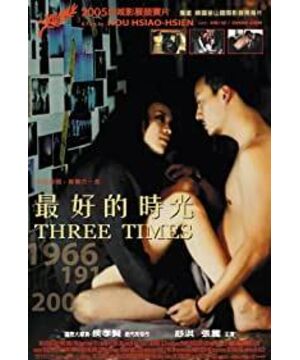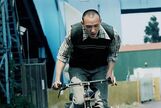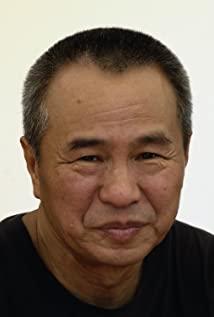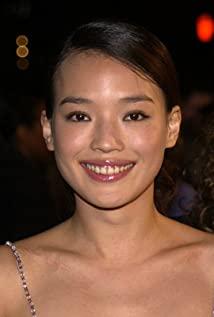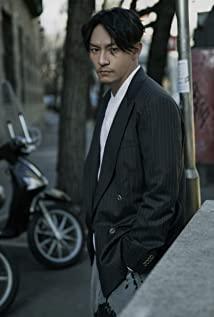"The Best Time" is a film directed by Taiwanese director Hou Hsiao-hsien and starring actors Shu Qi and Zhang Zhen. The film was released in 2005. It has many innovations in artistic and lyrical methods. The photography is exquisite, the music is beautiful, and the form and content are beautiful. It is a pleasing movie to watch. The theme of the film is love. Around love, the protagonists Shu Qi and Zhang Zhen have three different stories in different time and space. In the 1960s, Xiumei and a billiard hall boy intertwined their fingers in the "dream of love"; at the beginning of the last century, Yidan and a married man in politics sat opposite the "dream of freedom"; representing today's 2005 , singer Shu Qi and photographer Zhang Zhen swayed their youthful "dream of youth" on their motorcycles. It is worth mentioning that the director did not tell the three stories from ancient times to the present according to the order of time development. Instead, I will talk about the 1960s first, then skip to the beginning of the last century, and finally talk about the present. Youth Dream is a cold, metallic story, so here I think the director did it on purpose. By breaking the logic of time development, the film as a whole becomes hazy, which is more in line with the cold temperament of the ending metal. The plot of each story in the film is very simple, the dialogue is done in a minimalist way, and even the second story in the middle does not use dialogue at all, and is interpreted in the form of a silent film. I will start with the first story, "Dream of Love": Zhang Zhen, as a young man who failed the college entrance examination, often goes to the billiards hall where Shu Qi works part-time. The two of them have almost no lines. The camera often takes long shots in one shot. The color saturation of the picture is full, and the picture is still and beautiful. The protagonist's emotional warming is almost entirely dependent on the eyes. Zhang Zhen and Shu Qi can be said to have contributed textbook-level performances here. Zhang Zhen said, "I want to write to you!" Shu Qi said, "Morning." Sure enough, Shu Qi received the letter the next morning. Zhang Zhen came back to find Shu Qi during his military service holiday. After a day of searching, he went through many long shots of outside scenes through the car window. Finally, he found his long-lost sweetheart in a billiard hall in another county seat. The two shared an umbrella on a rainy day, and the camera gave a close-up of the hands of the two young men. Zhang Zhen's hand took the initiative to hold Shu Qi's hand, the Beatles' quiet music "rain and tears" sounded, and the sound of the rain could be heard, what a quiet and beautiful night. The artistic conception is quite similar to Zhang Ailing's novel: "Oh, so you are here too." The second story is based on an anecdote between the famous artist Wang Xiangchan and a certain political figure in the late Qing Dynasty. The story begins with Yidan playing "Manjianghong" and ends with "Manjianghong". Including the running through: the oil lamp that is about to burn out, and the one that appears at the end: the old master teaches the new little Yidan to sing songs...all imply that this story is a tragedy. Yidan asked the gentleman, "Have you ever considered my life?" The gentleman was silent, but he still came to listen to Yidan's songs every day. The husband was reluctant and unable to give up, so Yidan continued to suffer in the joy field day and night, waiting for the oil to run out. Perhaps because of the unequal relationship between Yidan and politicians, director Hou Hsiao-hsien turned the second story, the dream of freedom, into a silent film. If the dialogue of the first story is too simple, the second story has no dialogue, and some only have simpler words than the minimalist. When Yedan saw her sister being redeemed, she was silent; when she knew that her husband would not help him redeem, she was silent; when she learned that the new geisha next door was only ten years old, she was silent. Silence is like a monument, there is only one song "Man Jiang Hong" played like weeping and complaining. The personal tragedy is intertwined with the stagnation of the times, and the brothel has become a prison that a woman cannot escape for her entire life. The third story is very eccentric. Shu Qi, a bisexual girl with a ¥ tattoo on her neck, betrayed a gay man because she fell in love with photographer Zhang Zhen. He likes to go to bars to sing postmodern songs without melody, so Zhang Zhen likes to crouch next to her and shoot her at this time. He likes to walk on the street with his slippers and pajamas on, but he is still beautiful. The whole story is cold, sloppy, and has a sense of metal—the girl who doesn't feel consuming her, and the boy who anxiously finds her breakthrough, both deeply make people feel the aging of the city. The story has no tenderness, no elaboration, and no climax. The director uncharacteristically escapes his brushstrokes, but instead shows Shu Qi's extreme and alternative. She also won the Golden Horse Award for Best Actress that year with this film. The most worth mentioning of this film are the exquisite long-shot photography, the photography style full of oriental ink paintings in the free dream segment, the Beatles and Man Jianghong, etc. The long shot is the consistent style of director Hou Hsiao-hsien. The long shot of Zhang Zhen riding a bicycle and the long shot of the billiard scene in "The Best Time" are excellent. The whole chapter of Freedom Dream is an indoor scene, so it pays special attention to the aesthetics of photography, which can be seen from a kerosene lamp and a window. If you take screenshots of these pictures, every second is a beautiful ink painting. The Beatles and Man Jianghong are part of the narrative in their separate stories: Zhang Zhen wrote to Shu Qi "the neighbors are putting the Beatles", the two confessed their hearts, and the soundtrack was also the Beatles; Yidan performed "Man Jianghong" to the guests , the voice comes out first, from small to big, which not only shows the identity of the character but also a helpless accusation of life experience. The director expresses love through stories from three different eras: either pure, poignant, or cold. Telling a theme that is easy to fall into clichés is unique and moving. This is a movie I want to keep reminiscing about.
View more about Three Times reviews


